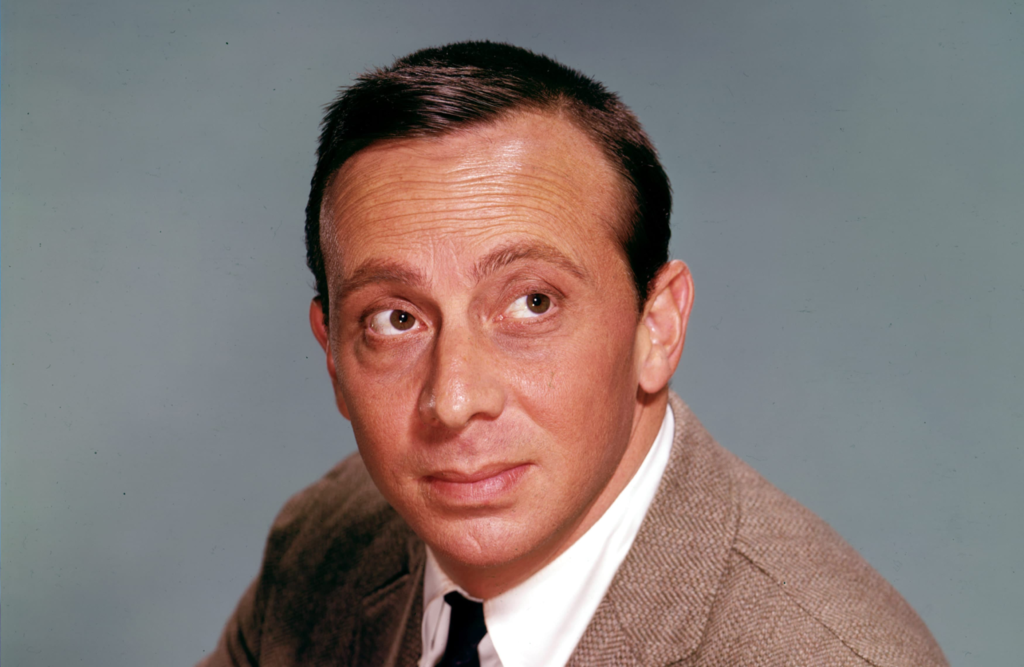
norman fell
Introduction to Norman Fell: More Than Just a Comedic Actor
Norman Fell’s name brings an immediate smile to fans of classic television. Most widely norman fell remembered for his role as the bumbling but lovable landlord Stanley Roper in Three’s Company and its spin-off The Ropers, Fell’s talent extended far beyond just one character. He was a skilled actor with a career that spanned more than four decades and included diverse roles in film, television, and even the theater. While he is often recognized for his comedic chops, Fell’s journey through Hollywood was marked by versatility, discipline, and a constant willingness to hone his craft.
Fell’s journey into acting wasn’t an overnight success story. He began his career in a time when the Hollywood landscape was highly competitive, yet his unique style of humor and his natural on-screen presence quickly set him apart from his peers. Born in Philadelphia, Pennsylvania, on March 24, 1924, Fell grew up with a modest background, which likely influenced his relatable, everyman style of acting. His humor often had an norma fell undertone of vulnerability that resonated with audiences, making him one of the most memorable actors of his generation.
To fully appreciate Norman Fell’s legacy, it’s essential to delve into his early years, explore his rise to fame, and examine the iconic roles that defined his career. Additionally, we’ll look at his influence on television comedy and his lasting impact on future generations of actors and audiences alike. Let’s journey through the life of this remarkable actor, who was far more than just Mr. Roper.
Early Life and Path to Hollywood Stardom

Norman Fell’s story begins in the bustling city of Philadelphia, where he grew up in a working-class norman fell family. Unlike many Hollywood stars who were born into affluent families or had early access to the entertainment industry, Fell’s beginnings were humble. His early experiences in Philadelphia were grounded in modesty and hard work, values that would shape his personality and approach to his career later in life. He was known as a friendly, approachable person, traits that became his signature style in Hollywood.
After graduating from high school, Fell’s journey to stardom took a detour when he enlisted in the norman fell United States Army Air Forces during World War II. He served as a tail gunner on a B-24 bomber, a role that required resilience, bravery, and discipline. These experiences may have contributed to his later portrayals of characters who possessed a certain depth and complexity, even in comedic roles. After the war, he took advantage of the GI Bill to study acting, which led him to the prestigious American Academy of Dramatic Arts in New York City. This training was a turning point for Fell, providing him with the foundational skills he needed to break into the entertainment industry.
Fell’s early career began on the stage, where he honed his craft in various theatrical productions. He appeared in several Broadway plays, which allowed him to develop his comedic timing and deepen his understanding of character work. It was his theater background that ultimately gave him the skills to transition smoothly into television and film. His ability to embody a character fully, whether serious or comedic, would later become one of his greatest strengths on screen. The journey from Philadelphia to Broadway and eventually Hollywood was not an easy one, but it forged a talent that would endure for decades.
Breakthrough Role in Television: Three’s Company and the Birth of Mr. Roper
Norman Fell’s big break came with his casting as Stanley Roper in Three’s Company, a sitcom that debuted in 1977. Fell’s portrayal of the nosy and often clueless landlord struck a chord with audiences, making Mr. Roper one of the most memorable characters on television at the time. The role of Stanley Roper was initially conceived as a supporting character, but Fell’s performance elevated Mr. Roper to an iconic status. His chemistry with co-star Audra Lindley, who played his wife Helen Roper, was electric, and the duo became one of TV’s most beloved on-screen couples.
The brilliance of Fell’s performance lay in his ability to blend humor with pathos. Mr. Roper was not simply a caricature of a landlord; he was a complex character with insecurities, quirks, and a genuine affection for his wife, even if he often showed it in awkward ways. Fell had a gift for physical comedy, often using facial expressions and body language to convey Mr. Roper’s emotions without even saying a word. This talent for non-verbal acting became a signature of his performance, making Mr. Roper a character that viewers could connect with on multiple levels.
Due to the popularity of Mr. Roper, Fell and Lindley were given their own spin-off show, The Ropers, which ran for two seasons. Although the series didn’t achieve the same level of success as Three’s Company, it allowed Fell to further explore his character and bring new dimensions to Mr. Roper. Fell’s performance on both shows left a lasting legacy, inspiring future sitcom actors to develop characters that are humorous yet grounded in reality. Even today, fans of classic television remember Mr. Roper as a quintessential comedic character, thanks to Norman Fell’s dedicated and nuanced portrayal.
The Art of Physical Comedy: Norman Fell’s Unique Style
Physical comedy is a challenging skill that requires precise timing, physical control, and an innate sense of humor. Norman Fell was a master of this art, using his body language and facial expressions to create humor that resonated with audiences. His talent for physical comedy was especially evident in his portrayal of Mr. Roper, where a raised eyebrow, a sideways glance, or a quick turn of the head could convey more than an entire line of dialogue. This unique style became one of Fell’s trademarks, setting him apart from other actors of his time.
One of the reasons Fell’s physical comedy was so effective is that it never felt forced. He had an effortless way of moving that made his humor appear natural and relatable. His use of physical comedy often involved subtle gestures rather than exaggerated actions, making his characters feel authentic rather than over-the-top. This subtlety allowed Fell to connect with his audience on a deeper level, as viewers could see elements of real-life awkwardness and vulnerability in his characters.
Fell’s approach to physical comedy wasn’t just about getting laughs; it was about adding layers to his character. For example, in Three’s Company, Mr. Roper’s physical humor often reflected his discomfort with certain situations, like dealing with his tenants’ antics or navigating his relationship with his wife. By using physicality to express these internal conflicts, Fell created a character that was not only funny but also relatable and emotionally engaging. His mastery of physical comedy is a testament to his skill as an actor and remains an essential part of his legacy in the world of television.
Beyond Comedy: Norman Fell’s Dramatic Roles and Versatility
While Norman Fell is primarily celebrated for his comedic roles, he was an incredibly versatile actor who also took on serious and dramatic roles throughout his career. Early in his career, Fell appeared in several dramatic films and television series, showcasing his range as an actor. His ability to shift seamlessly between comedy and drama is a testament to his dedication to his craft and his desire to challenge himself as an artist. This versatility allowed Fell to build a diverse body of work that went beyond the sitcom format.
One of Fell’s notable dramatic roles was in the film The Graduate (1967), where he played Mr. McCleery, a landlord, opposite Dustin Hoffman’s character. Although it was a small role, Fell’s performance was memorable, adding depth and humor to a serious scene without overshadowing the main action. This ability to balance drama with humor became one of Fell’s strengths, allowing him to bring a unique presence to every role he played. His work in The Graduate showcased his skill in adding subtle humor to dramatic situations, making him a valuable asset to any production.
Throughout his career, Fell appeared in various television dramas, including The Fugitive, Perry Mason, and Murder, She Wrote. These roles allowed him to explore different facets of his acting abilities and to develop a reputation as a reliable and adaptable actor. Unlike many actors who become typecast in a single genre, Fell’s willingness to take on diverse roles helped him maintain a long and varied career. His dramatic roles demonstrated that he was more than just a comedian; he was a talented actor capable of bringing depth and authenticity to any character he portrayed.
Legacy and Influence on Television Comedy
Norman Fell’s impact on television comedy extends far beyond his role as Mr. Roper. His unique approach to humor, blending physical comedy with subtle, character-driven moments, has influenced generations of actors and comedians. Fell’s portrayal of Mr. Roper redefined the role of the “comic relief” character in sitcoms, demonstrating that even a supporting character could have depth and complexity. This influence can be seen in many modern sitcoms, where secondary characters are often given rich backstories and complex personalities.
Fell’s legacy also lies in his dedication to his craft and his commitment to bringing authenticity to every role. He approached each character with respect and care, whether it was a comedic landlord or a serious supporting role in a drama. This dedication inspired his co-stars and colleagues, many of whom have praised his work ethic and professionalism. Actors who worked with Fell often describe him as a generous performer who was always willing to collaborate and share the spotlight.
In addition to his influence on actors, Fell’s work has had a lasting impact on audiences. His portrayal of Mr. Roper remains a beloved part of television history, and reruns of Three’s Company continue to attract new fans. Fell’s humor, charm, and relatable personality have left an indelible mark on popular culture, making him a timeless figure in the world of entertainment. His legacy as a talented,
versatile actor and a pioneer in television comedy will continue to be celebrated for generations to come.
Conclusion: Celebrating the Life and Legacy of Norman Fell
Norman Fell’s career is a testament to the power of talent, dedication, and authenticity. From his early days on the stage to his breakout role as Mr. Roper, Fell’s journey through Hollywood was marked by hard work, resilience, and an unwavering commitment to his craft. His ability to create memorable characters that resonate with audiences is a rare gift, one that has secured his place as a true icon of television comedy.
Fell’s legacy lives on in the countless actors he has inspired, the fans who continue to enjoy his work, and the television shows that owe a debt to his pioneering approach to character-driven comedy. While he may be best remembered as Mr. Roper, Norman Fell was much more than a single role. He was a versatile actor, a beloved entertainer, and a true professional who left an indelible mark on the world of entertainment.
As we look back on his life and career, it’s clear that Norman Fell’s contributions to television and film are deserving of celebration and admiration. His work has stood the test of time, and his influence on the entertainment industry remains as strong as ever. Through his memorable performances and his dedication to his craft, Norman Fell has earned his place as a legend in the annals of television history.





